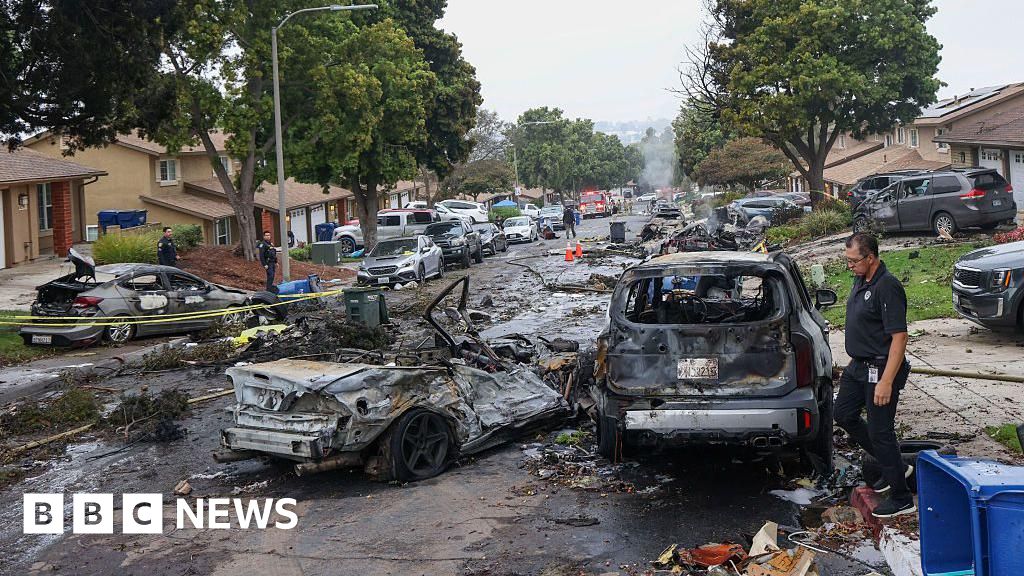- Editorial
Met Gala tickets cost $75,000. Here's what to know about fashion's biggest night
时间:2010-12-5 17:23:32 作者:Baseball 来源:Middle East 查看: 评论:0内容摘要:Unlike Shakahola, the Migori church allowed its followers to work, eat and run businesses in the nearby Opapo and Rongo towns. But like Shakahola, it also kept them living apart from the rest of society, barred them from accessing school, marriage and medical care, and severely punished supposed transgressions, according to locals who heard and witnessed violent beatings and fights inside the compound.Unlike Shakahola, the Migori church allowed its followers to work, eat and run businesses in the nearby Opapo and Rongo towns. But like Shakahola, it also kept them living apart from the rest of society, barred them from accessing school, marriage and medical care, and severely punished supposed transgressions, according to locals who heard and witnessed violent beatings and fights inside the compound.
"Companies are responsible for how their products are being used. It’s crucial for companies to make sure that they are not causing or contributing to adverse human rights impacts related to their operations. They should seek to prevent or mitigate the adverse human rights effects," Ella Skybenko, a researcher at the London-based Business & Human Rights Resource Centre, told Al Jazeera.Skybenko said that companies should carry out enhanced due diligence and put in place mechanisms to identify suspicious orders from third parties.

“For instance, if the order is unusually large, a producer can start asking questions,” she said. “I know some companies require their customers to testify that their goods would not be shipped to Russia.”Mechanisms for holding companies accountable, however, are limited, apart from The International Criminal Court, and only address the most direct examples of harm, such as where their components are used in weapons used to target civilians.Ukraine’s National Agency on Corruption Prevention (NACP) maintains a database of foreign components reportedly found in Russian and Iranian weapons in Ukraine, listing thousands of items from dozens of countries including the US and many members of the EU.

Among the companies named in the database are household brands including Bosch, Hitachi, Canon and LG.Bosch told Al Jazeera that it “instituted and maintains policies and procedures reasonably designed to meet and achieve regulatory compliance requirements, applicable export control laws and regulations."

"It is our goal to prevent Bosch products from being used in a way that violates sanctions at the end of the direct or indirect supply chain within our sphere of influence,” a spokesperson said.
Other companies named in the database did not reply to Al Jazeera.In Western Europe, many countries use some derivative of te. For example, “tea” was introduced into the English language as a result of trade routes in the East. The word was taken from China, where it was pronounced “te” in the Hokkien dialect.
Who produces the most tea globally?The tea plant is usually grown in tropical and subtropical climates where its cultivation and processing support the livelihoods of millions of people.
According to the latest data from theTea and Coffee Trade Journal
- 最近更新
- 2025-07-07 09:01:55How the Federal Reserve affects personal loan rates
- 2025-07-07 09:01:55How much have US wars in the Middle East and Afghanistan cost?
- 2025-07-07 09:01:55Five years since the murder of George Floyd, what has changed?
- 2025-07-07 09:01:558 money lessons from the 2008 Great Recession that apply today: A reality check
- 2025-07-07 09:01:555 debts to prioritize paying off before retirement
- 2025-07-07 09:01:55Updates: Israel, US say ‘unacceptable’ as Hamas gives Gaza truce response
- 2025-07-07 09:01:55Divided Israel faces internal unrest amid escalating Gaza conflict
- 2025-07-07 09:01:55Why has Elon Musk quit Donald Trump’s administration?
- 热门排行
- 2025-07-07 09:01:55One-Pan Paprika Chicken with Potatoes and Tomatoes
- 2025-07-07 09:01:55In rural Pakistan, bull racing draws crowd in cricket-loving nation
- 2025-07-07 09:01:55when it apparently clipped the tail
- 2025-07-07 09:01:55Girl tells Al Jazeera how she escaped school inferno
- 2025-07-07 09:01:55Candace Cameron Bure's Daughter Natasha Sizzles in Itty-Bitty Bikini Photos
- 2025-07-07 09:01:555 common pet insurance myths — debunked: The truth about cost, coverage and exclusions
- 2025-07-07 09:01:55credit cards that offer 0% introductory APR
- 2025-07-07 09:01:55Visual guide to how the Gaza aid distribution turmoil unfolded
- 友情链接
- Gaza baby sent back to war zone after open-heart surgery in Jordan Why we need 'revolutionary' cooling tech Western Canada wildfires emergency hits another province as thousands flee Youth charity takes over High Street art gallery Trial of Maradona's medical team collapses 'Misfits of the 1990s' celebrated in exhibition EU says Israeli strikes in Gaza 'go beyond what is necessary' to fight Hamas India's colonial past revealed through 200 masterful paintings Giant of African literature Ngũgĩ wa Thiong'o dies aged 87 Security breaks down in Gaza as desperate people search for food Tolkien statues for village that inspired his work Tropical forests destroyed at fastest recorded rate last year Gaza baby sent back to war zone after open-heart surgery in Jordan 'People show me their intimate tattoos of my album art' Glacier collapse buries most of Swiss village Paedophile surgeon's sentence leaves victims appalled TT visitor trade offers 'crucial' boost to firms Writers plan to turn phone boxes into writing hubs Lobster 'releasathon' marks hatchery's anniversary Chinese paraglider survives accidental 8,000m-high flight Eurovision trio announced for Ludlow castle gigs Disasters spur investment in flood and fire risk tech Badenoch attacks Starmer and Farage over welfare Controversial US-backed group says it has begun aid distribution in Gaza China student says college made her 'take off trousers' for period leave How Netflix's Department Q went from Scandi noir to Tartan noir A letter from the M&S hackers landed in my inbox - this is what happened next Nature inFocus Photography Awards 2024: Leopards, sharks and spiders Australian comedian Magda Szubanski diagnosed with cancer Festival event to mark Austen's 250th birthday
